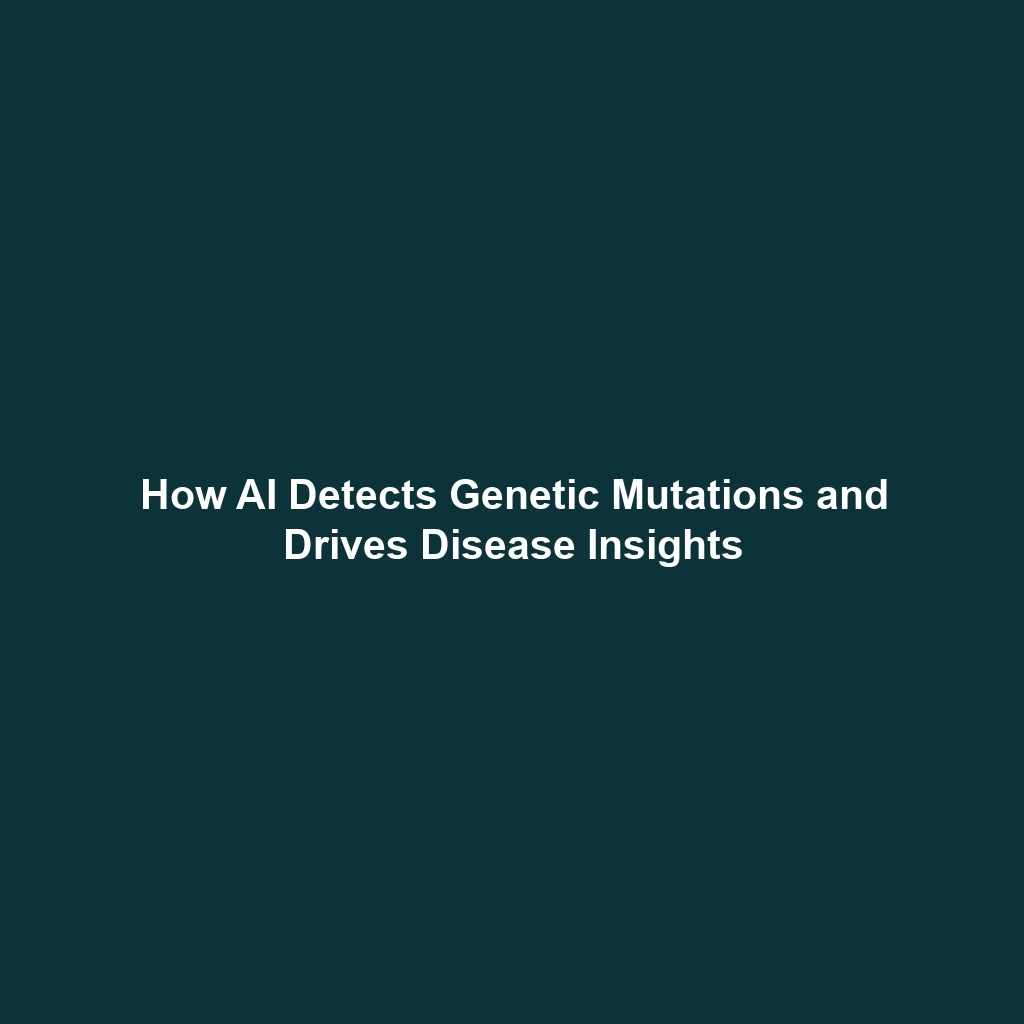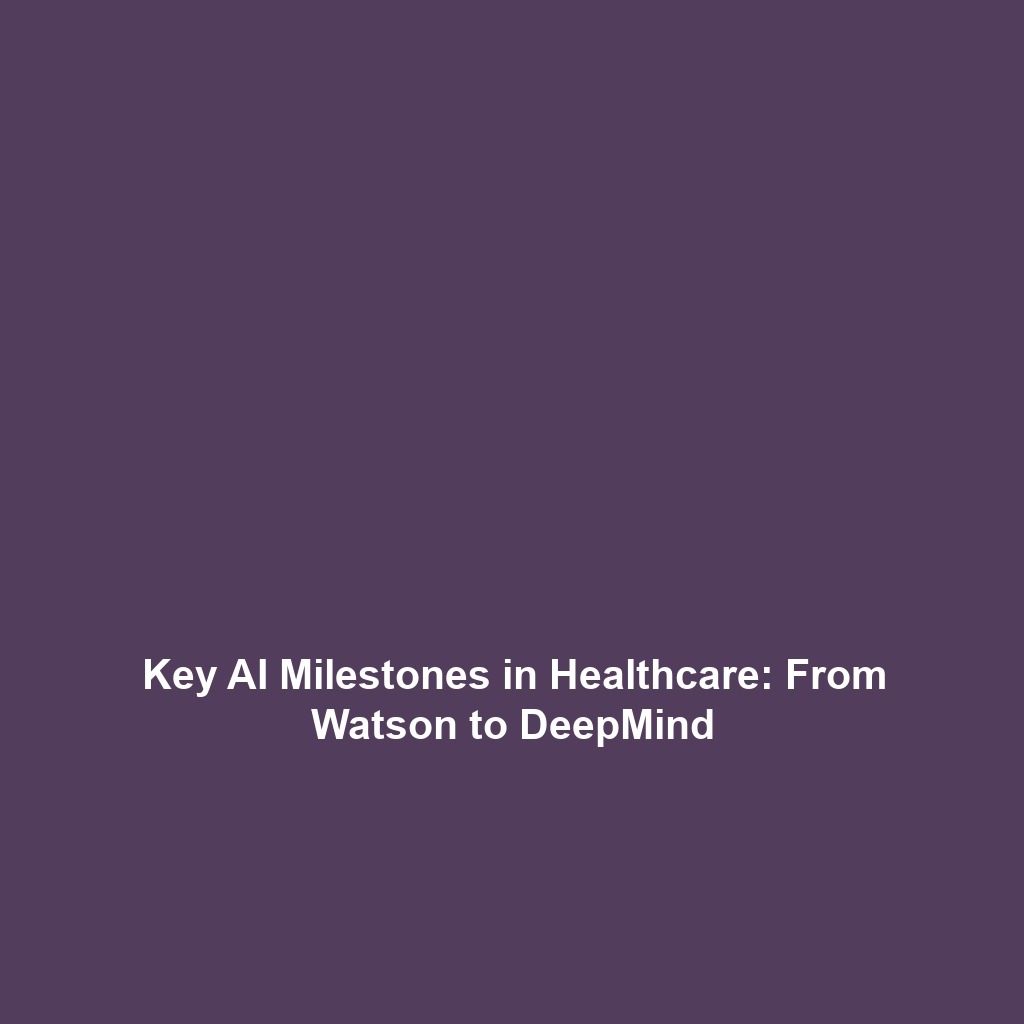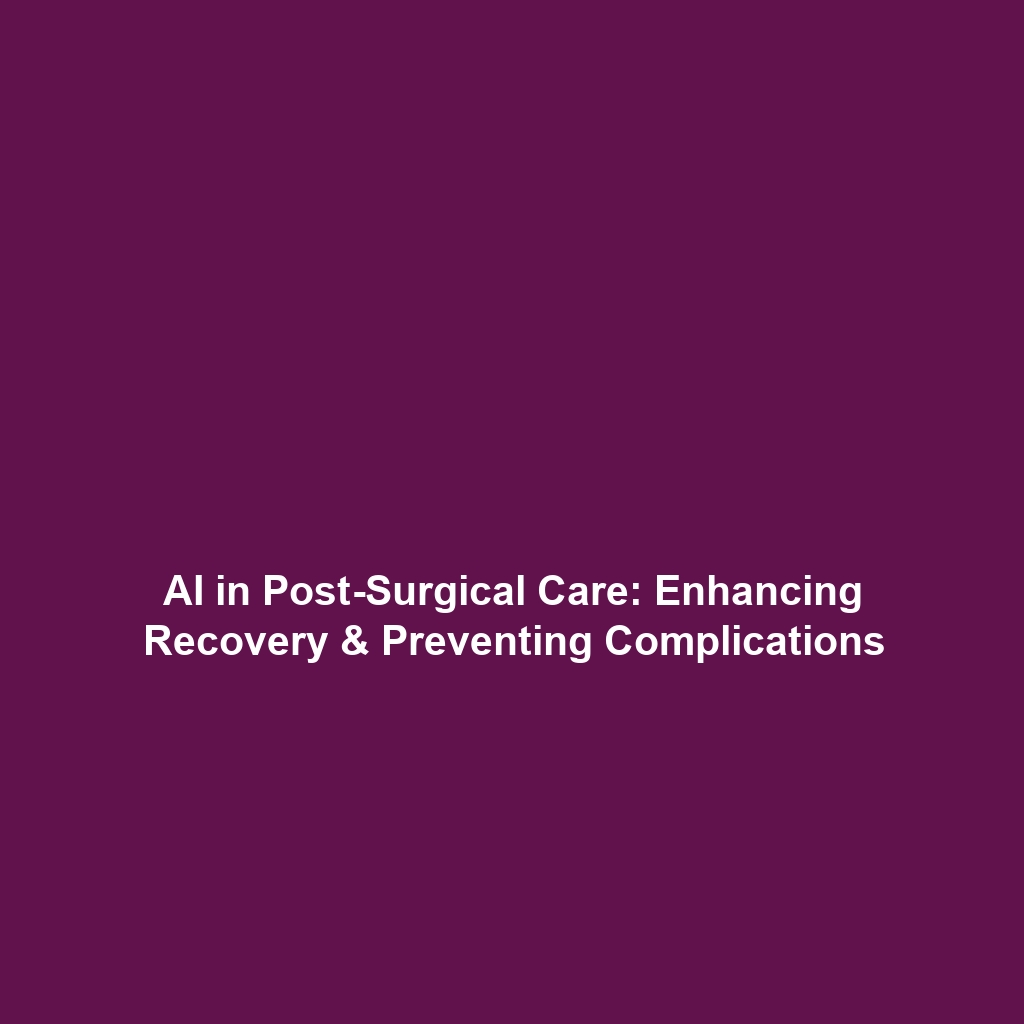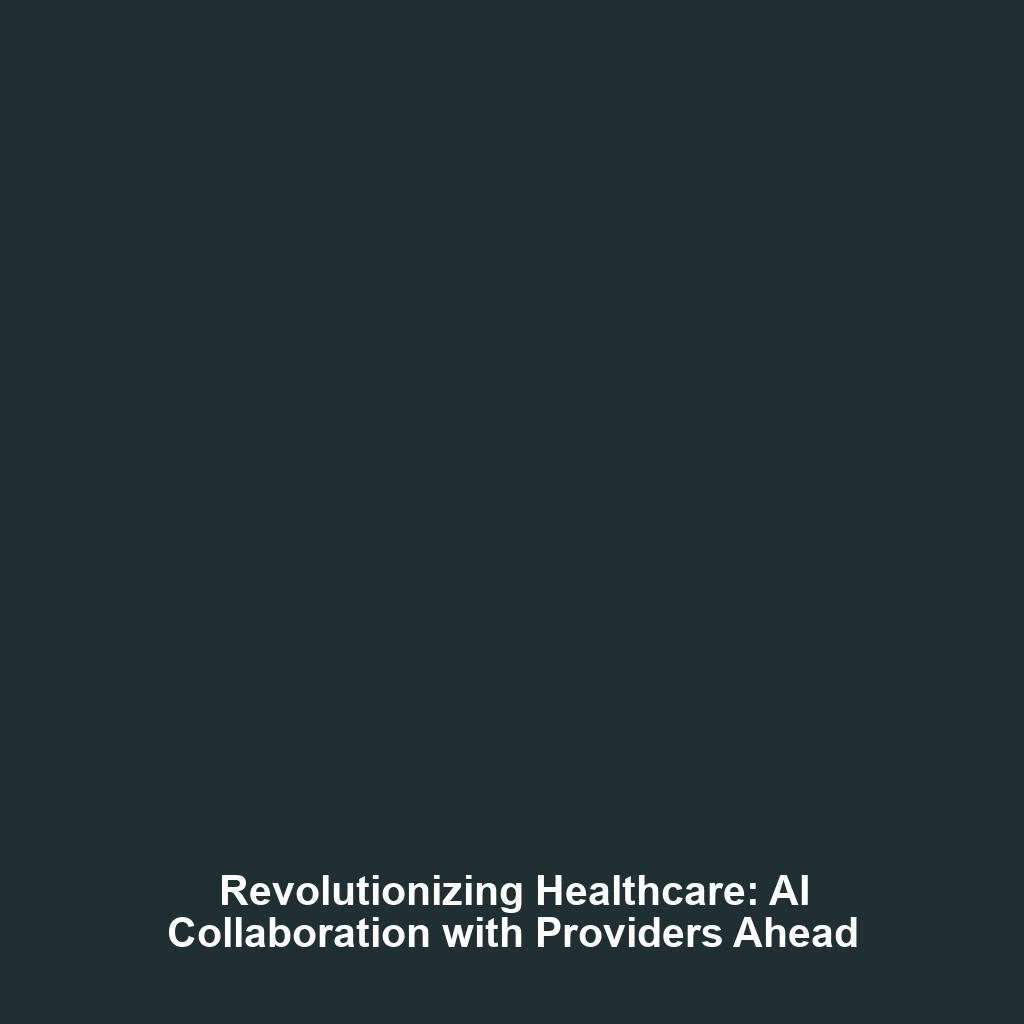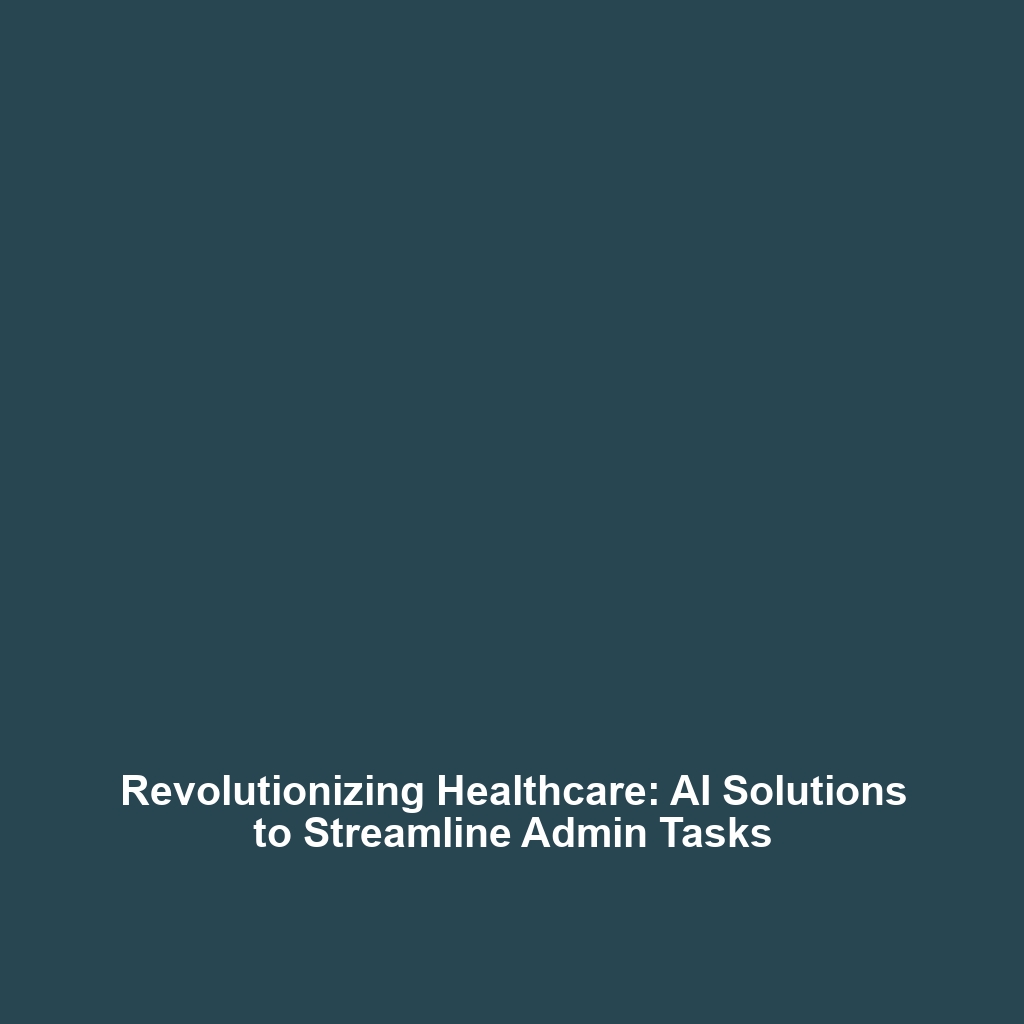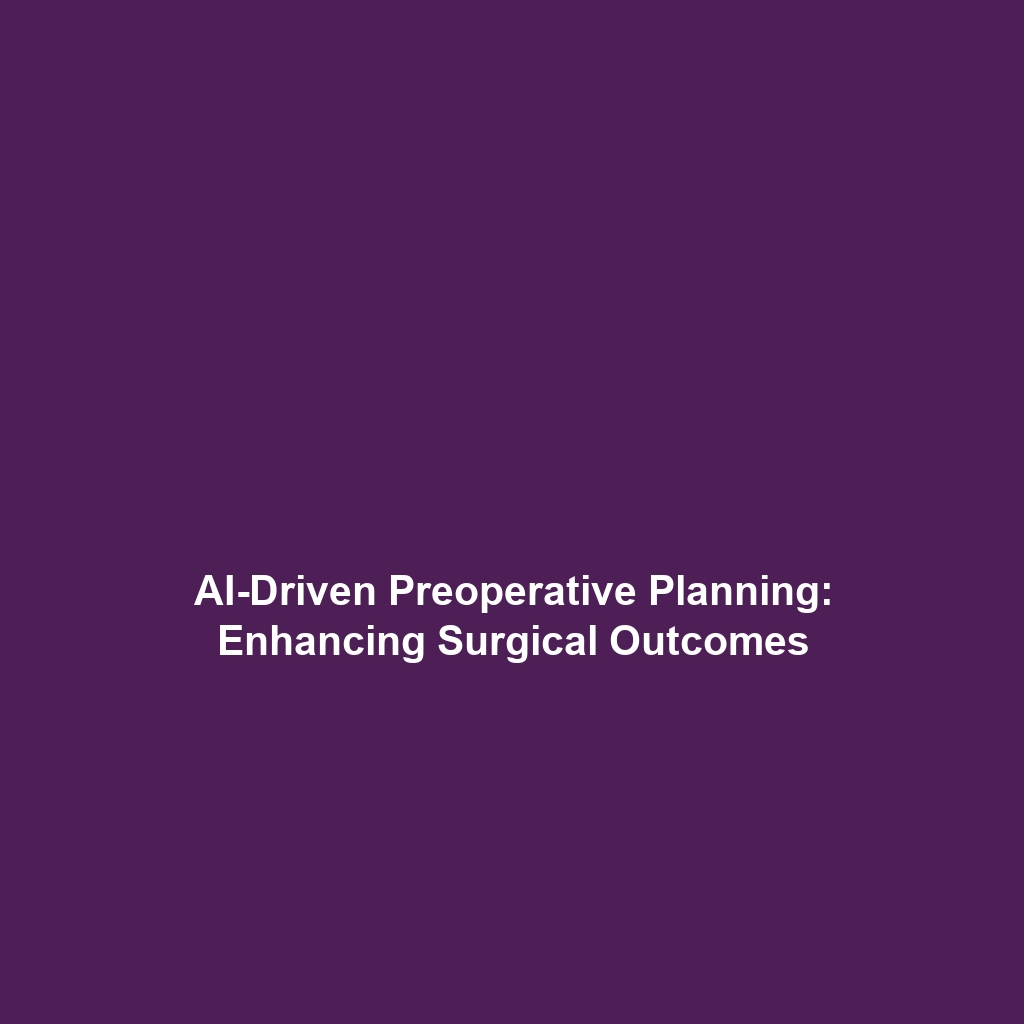The Role of AI in Detecting Mutations and Understanding the Genetic Basis of Diseases
Introduction
The integration of Artificial Intelligence (AI) in healthcare has revolutionized the detection of genetic mutations and provided profound insights into the genetic basis of diseases. Understanding how AI facilitates mutation detection is crucial for enhancing diagnostic accuracy and personalizing treatment strategies. As healthcare continues to evolve, the significance of AI in genetics not only aids in disease understanding but also paves the way for innovative therapeutic approaches. This article delves into how AI is transforming healthcare through its role in genetics, improving patient outcomes, and driving forward research in the field.
Key Concepts
Understanding Genetic Mutations
Genetic mutations are alterations in the DNA sequence that can lead to various diseases, ranging from cancer to inherited disorders. AI technologies, such as machine learning and deep learning, are being employed to analyze vast genomic datasets, allowing for quick identification of mutations.
AI Algorithms in Healthcare
AI algorithms can analyze genetic data at an unprecedented scale and speed, facilitating the understanding of complex genetic patterns associated with diseases. This capability not only enhances the precision of genomic medicine but also provides tools for predictive analytics in healthcare, leading to improved patient outcomes.
Applications and Real-World Uses
The applications of AI in detecting mutations and understanding genetic disease mechanisms are vast and impactful. Key examples include:
- Genomic Sequencing: AI systems are employed to interpret results from genomic sequencing, identifying crucial mutations in cancer patients.
- Precision Medicine: By understanding the genetic basis of diseases, AI aids in developing targeted therapies that align with individual genetic profiles.
- Research Advancements: AI-driven tools support researchers in uncovering genetic correlations with diseases, leading to breakthroughs in drug development.
These use cases exemplify how AI enhances mutation detection and expedites findings in the field of healthcare.
Current Challenges
Despite its potential, several challenges exist concerning the use of AI in detecting mutations and understanding genetic diseases:
- Data Privacy: Ethical concerns regarding patient data confidentiality can hinder the implementation of AI technologies.
- Algorithm Bias: There is a risk of biases in AI algorithms, which can affect the accuracy of mutation detection across diverse populations.
- Integration with Existing Systems: Many healthcare institutions face challenges integrating new AI technologies into their existing infrastructure.
Future Research and Innovations
The future of AI in detecting mutations and understanding the genetic basis of diseases looks promising, with potential breakthroughs on the horizon:
- Next-Generation Sequencing: Innovations in sequencing technology will drive the need for advanced AI algorithms to interpret increasingly complex data.
- Enhanced Predictive Models: Research is focused on developing AI models that can predict health outcomes based on genetic information.
- AI and CRISPR Technologies: Future AI innovations may significantly accelerate CRISPR gene-editing capabilities by identifying target mutations more efficiently.
Conclusion
The role of AI in detecting mutations and understanding the genetic basis of diseases is pivotal in transforming healthcare. By enhancing diagnostic accuracy, facilitating precision medicine, and driving research, AI proves to be a critical player in the future of healthcare. As we continue to explore this intersection of technology and medicine, it is essential to address the accompanying challenges to maximize AI’s benefits. For further insights, explore our articles on AI Applications in Healthcare and Genomic Medicine Innovations.
